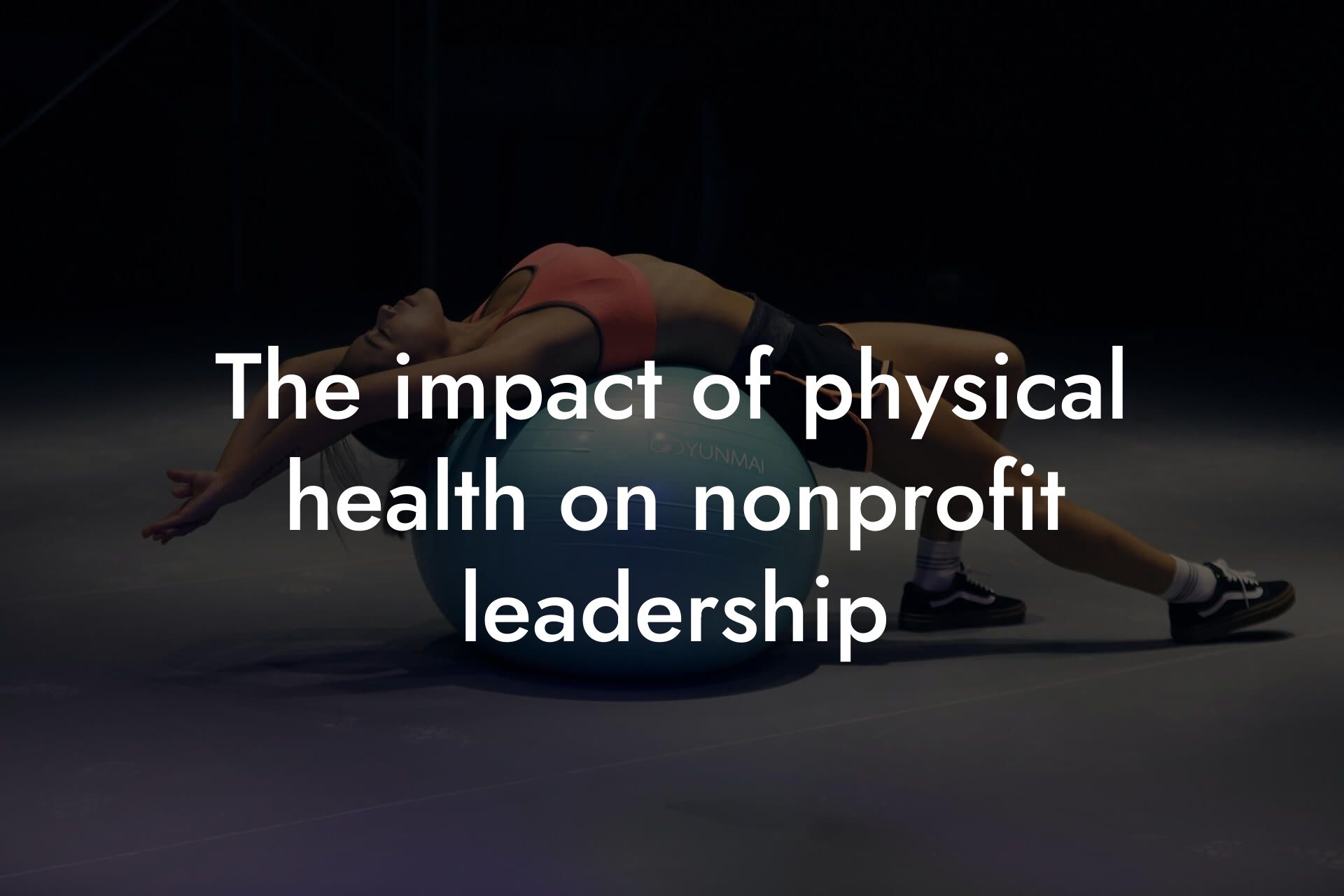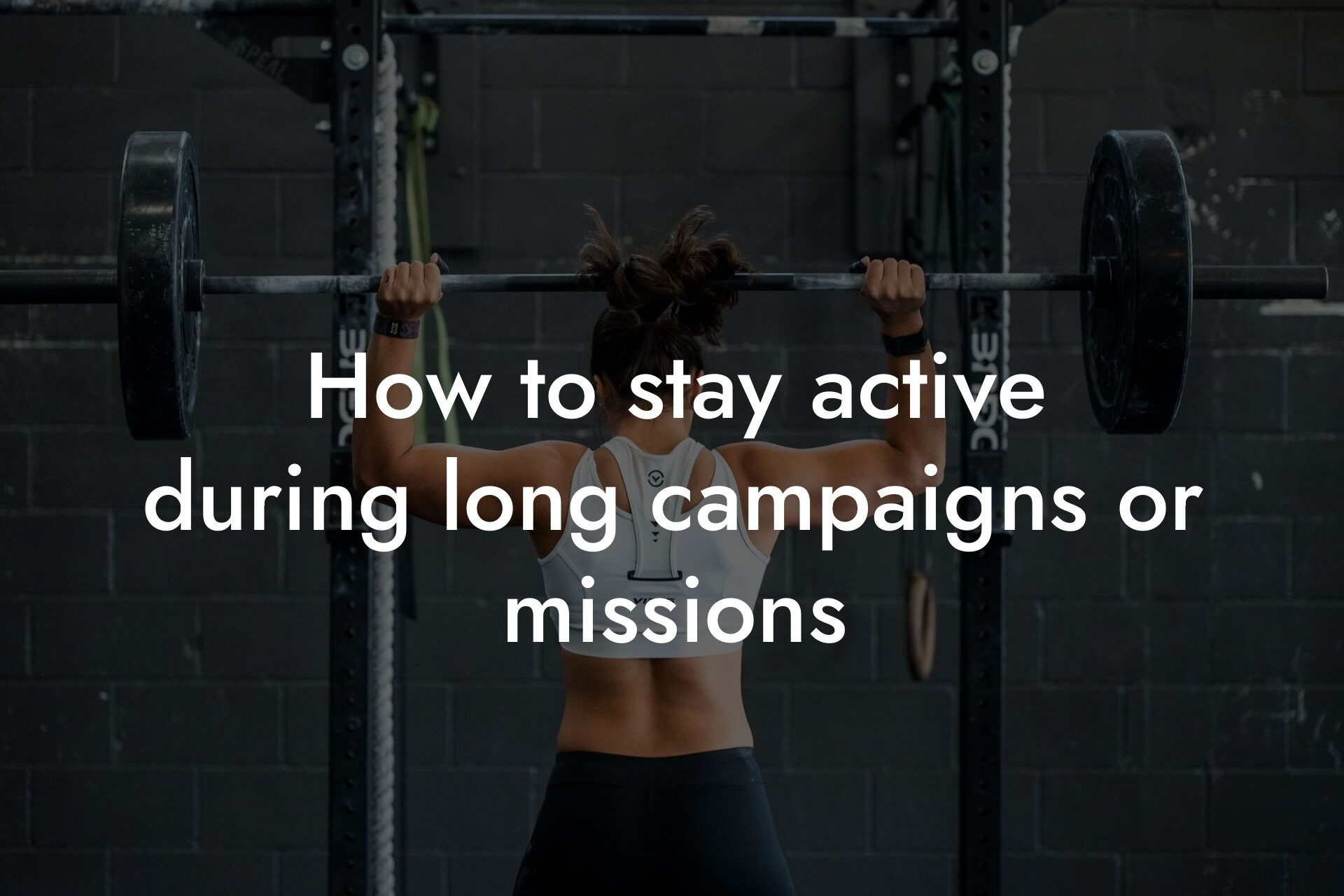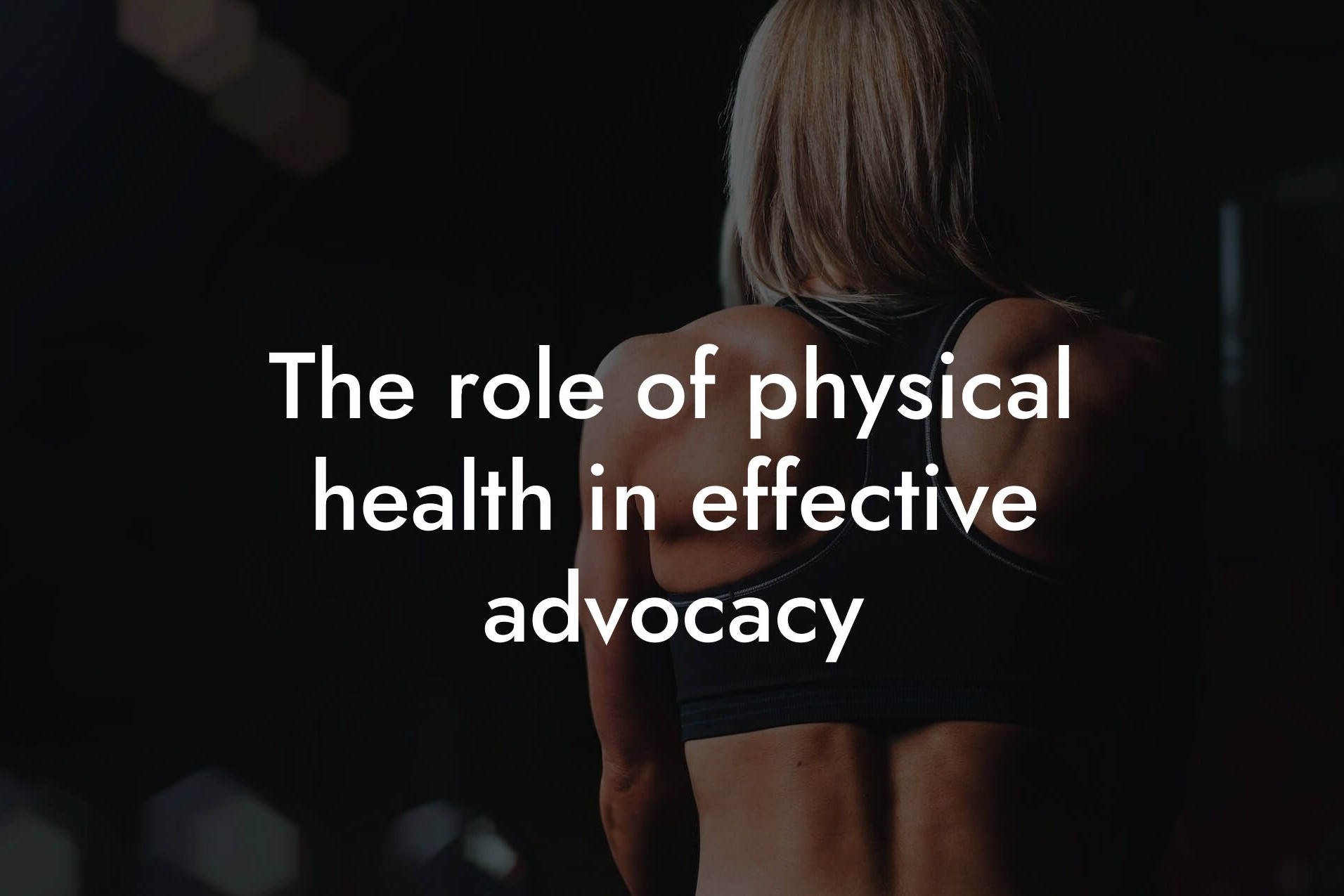As an NGO professional, your work is crucial to making a positive impact on the world. However, your demanding schedule and frequent travel can make it challenging to prioritize your physical health. At Tano Performance Group, we understand the importance of maintaining a healthy body, especially for high-achieving professionals like yourself. In this article, we'll provide you with quick and effective workouts that can be done in the field, ensuring you stay on top of your game while making a difference.
Table of Contents
Challenges of Staying Active in the Field
NGO professionals often face unique challenges when it comes to staying active. Limited access to gym facilities, unpredictable schedules, and high-stress environments can make it difficult to prioritize exercise. Additionally, the physical demands of working in the field, such as carrying heavy equipment or traversing rugged terrain, can leave you feeling exhausted. It's essential to find ways to stay active that are adaptable to your environment and schedule.
Benefits of Exercise for NGO Professionals
Regular exercise can have a significant impact on your overall well-being and productivity. Exercise can help reduce stress, increase energy levels, and improve sleep quality. It can also enhance your mental clarity and focus, allowing you to tackle complex problems with confidence. Furthermore, exercise can help you build resilience, enabling you to better cope with the emotional demands of working in the field.
Quick and Effective Workouts for the Field
Here are some quick and effective workouts that can be done in the field, requiring minimal equipment or space:
1. Bodyweight exercises: Squats, lunges, push-ups, and planks are effective exercises that can be done anywhere. Aim for 3 sets of 10-15 reps.
2. High-intensity interval training (HIIT): HIIT involves short bursts of intense exercise followed by brief periods of rest. Examples include sprints, burpees, or jump squats. Aim for 20-30 minutes, 3-4 times a week.
3. Yoga or Pilates: These low-impact exercises can help improve flexibility, balance, and core strength. You can find videos and tutorials online or download an app like Down Dog or Nike Training Club.
4. Resistance band exercises: Resistance bands are lightweight, portable, and inexpensive. They can be used to work out your entire body, from arms and legs to chest and back.
Tips for Fitting Exercise into Your Schedule
As an NGO professional, your schedule can be unpredictable. Here are some tips for fitting exercise into your busy schedule:
1. Start small: Aim for 10-15 minute workouts, 2-3 times a week. This can be as simple as taking a short walk or doing a few jumping jacks during breaks.
2. Schedule it in: Treat exercise as a non-negotiable part of your daily routine, just like meetings or report writing.
3. Find a workout buddy: Having someone to hold you accountable and provide moral support can make a big difference.
4. Use technology to your advantage: Download fitness apps or find online workout tutorials that can be done on your phone or tablet.
Staying Hydrated and Fueled in the Field
Adequate hydration and nutrition are essential for optimal performance. Here are some tips for staying hydrated and fueled in the field:
1. Bring a refillable water bottle: Aim to drink at least 8-10 glasses of water per day.
2. Pack nutritious snacks: Nuts, dried fruits, and energy bars are convenient and provide a quick energy boost.
3. Eat locally sourced food: When possible, opt for locally sourced fruits, vegetables, and whole grains.
4. Avoid sugary drinks: Limit your intake of sugary drinks, which can lead to energy crashes and decreased performance.
The Importance of Rest and Recovery
Rest and recovery are crucial components of any exercise routine. As an NGO professional, it's essential to prioritize rest to avoid burnout and maintain peak performance.
1. Aim for 7-8 hours of sleep per night: This can help your body recover from the physical demands of working in the field.
2. Take breaks: Take regular breaks throughout the day to stretch, move around, and rest your eyes.
3. Practice self-care: Engage in activities that bring you joy and relaxation, such as reading, meditation, or listening to music.
As an NGO professional, your work is vital to making a positive impact on the world. By prioritizing your physical health and incorporating quick and effective workouts into your schedule, you can maintain peak performance, reduce stress, and increase your overall well-being. Remember to stay hydrated, fueled, and rested, and don't be afraid to seek support from colleagues or fitness professionals. At Tano Performance Group, we're committed to helping high-achieving professionals like yourself take their health and performance to the next level.
By incorporating these quick workouts and tips into your daily routine, you'll be better equipped to tackle the challenges of working in the field and make a lasting difference in the world.
Frequently Asked Questions
What are the benefits of quick workouts for NGO professionals in the field?
As an NGO professional, you understand the importance of staying physically and mentally fit to tackle the demands of your job. Quick workouts can help improve your overall health, increase energy levels, and enhance your mental clarity, allowing you to perform at your best even in challenging environments.
How can I fit exercise into my busy schedule as an NGO professional?
Finding time to exercise can be challenging, but it's not impossible. Try to identify small pockets of time throughout your day, such as during lunch breaks or before/after meetings, to fit in a quick workout. You can also consider waking up 30 minutes earlier or incorporating physical activity into your daily commute.
What are some examples of quick workouts that I can do in the field?
There are many exercises that can be done with minimal equipment or even without any equipment at all! Bodyweight exercises like push-ups, squats, and lunges are great options. You can also try high-intensity interval training (HIIT) workouts that can be completed in as little as 10-15 minutes.
Do I need to be in good physical shape to start doing quick workouts?
Absolutely not! Quick workouts are designed to be accessible to anyone, regardless of their fitness level. Start with exercises that feel comfortable and gradually increase the intensity and duration as you become more confident.
How can I stay motivated to exercise while working in the field?
Staying motivated can be tough, especially when you're facing challenges in the field. Try to find a workout buddy or accountability partner to help keep you motivated. You can also set small, achievable fitness goals for yourself and reward yourself when you reach them.
What are some common injuries that NGO professionals may experience, and how can quick workouts help prevent them?
NGO professionals may be at risk for injuries such as back strain, knee problems, and heat exhaustion. Quick workouts can help prevent these injuries by improving flexibility, strengthening core muscles, and increasing cardiovascular endurance.
Can quick workouts really make a difference in my overall health and wellbeing?
Yes! Regular exercise, even if it's just a few minutes a day, can have a significant impact on your overall health and wellbeing. Quick workouts can help reduce stress, improve mood, and increase energy levels, all of which are essential for performing at your best in the field.
How can I incorporate quick workouts into my daily routine while working in the field?
Try to make exercise a habit by incorporating it into your daily routine. For example, you could do a quick workout as soon as you wake up, or right before dinner. Consistency is key, so find a routine that works for you and stick to it.
What are some tips for staying safe while exercising in the field?
It's essential to prioritize your safety while exercising in the field. Make sure to choose a safe and secure location, avoid exercising in extreme weather conditions, and stay hydrated by bringing plenty of water with you.
How can I track my progress and stay accountable with my quick workouts?
There are many ways to track your progress, including using a fitness tracker, logging your workouts in a journal, or taking progress photos. You can also share your goals and progress with a friend or accountability partner to help stay motivated.
Can quick workouts help reduce stress and anxiety while working in the field?
Exercise is a natural stress-reducer and can help alleviate anxiety. Quick workouts can help clear your mind, improve your mood, and reduce feelings of stress and anxiety, all of which are essential for performing at your best in the field.
How can I modify quick workouts to suit my fitness level and goals?
Quick workouts can be modified to suit your fitness level and goals. For example, if you're just starting out, you can start with shorter workouts and gradually increase the duration and intensity. If you're looking to improve your cardiovascular endurance, you can incorporate more cardio-based exercises into your routine.
What are some common myths about exercise and fitness that NGO professionals should be aware of?
There are many myths about exercise and fitness that can be misleading. For example, you don't need to spend hours at the gym to get a good workout, and you don't need to be a certain age or fitness level to start exercising. It's essential to educate yourself on the facts and find a workout routine that works for you.
How can quick workouts help improve my overall physical appearance?
Regular exercise, even if it's just a few minutes a day, can help improve your overall physical appearance. Quick workouts can help increase muscle tone, boost metabolism, and improve skin health, all of which can contribute to a more confident and healthy-looking you.
Can quick workouts help improve my bone density?
Yes! Exercise, especially weight-bearing exercises, can help improve bone density. Quick workouts that incorporate strength training and high-impact exercises can help strengthen your bones and reduce the risk of osteoporosis.
How can I incorporate strength training into my quick workouts?
Strength training is an essential component of any workout routine. You can incorporate strength training into your quick workouts by using resistance bands, dumbbells, or even your own body weight. Focus on exercises that target multiple muscle groups at once, such as squats and lunges.
What are some quick workout routines that can be done in a small space, such as a hotel room?
There are many quick workout routines that can be done in a small space, such as a hotel room. Bodyweight exercises like push-ups, squats, and lunges are great options, as well as yoga and Pilates routines that can be done in a small space.
How can I stay hydrated during and after my quick workouts?
Staying hydrated is essential during and after exercise. Make sure to bring plenty of water with you during your workout, and aim to drink at least 8-10 glasses of water per day. You can also consider incorporating electrolyte-rich drinks or snacks into your routine to help replenish lost electrolytes.
What are some healthy snacks that I can bring with me on the go?
Healthy snacking is essential for maintaining energy levels and supporting your fitness goals. Consider bringing snacks like nuts, dried fruit, energy bars, and jerky with you on the go. Aim for snacks that are high in protein and fiber and low in added sugars and salt.
How can I prioritize self-care and rest days while working in the field?
Prioritizing self-care and rest days is essential for maintaining your physical and mental health. Make sure to schedule rest days into your routine, and prioritize activities that bring you joy and relaxation, such as reading, meditation, or spending time with loved ones.
What are some common mistakes that NGO professionals make when it comes to exercise and fitness?
One common mistake is trying to do too much too soon, which can lead to burnout and injury. Another mistake is not listening to your body and pushing through pain or discomfort. It's essential to prioritize your health and wellbeing by listening to your body and taking rest days when needed.
How can I find a workout routine that works for me and my lifestyle?
Finding a workout routine that works for you and your lifestyle is essential for maintaining consistency and achieving your fitness goals. Experiment with different types of exercise, such as running, yoga, or weightlifting, to find what you enjoy and what works best for your schedule and goals.
Here are some related articles you might love...
- The impact of physical health on nonprofit leadership
- How to stay active during long campaigns or missions
- The role of physical health in effective advocacy
- The connection between fitness and nonprofit impact
- Balancing mission-driven work with personal fitness
- How DEXA scans can benefit nonprofit professionals
- Nutrition tips for maintaining energy during fundraising events
- How nonprofit workers can stay fit during demanding schedules
- Managing stress through physical fitness in nonprofit roles
Zak Faulkner
Zak Faulkner is a leading authority in the realm of physical health and body composition analysis, with over 15 years of experience helping professionals optimise their fitness and well-being. As one the experts behind Tano Performance Group, Zak has dedicated his career to providing in-depth, science-backed insights that empower clients to elevate their physical performance and overall health.
With extensive knowledge of DEXA technology, Zak specializes in delivering comprehensive body assessments that offer precise data on body fat, muscle mass, bone density, and overall physique. His expertise enables individuals to make informed decisions and achieve their fitness goals with accuracy and confidence. Zak’s approach is rooted in a deep understanding of human physiology, combined with a passion for helping clients unlock their full potential through personalised strategies.
Over the years, Zak has earned a reputation for his commitment to excellence, precision, and client-focused service. His guidance is trusted by top professionals who demand the best when it comes to their health. Whether advising on fitness programs, nutritional strategies, or long-term wellness plans, Zak Faulkner’s insights are a valuable resource for anyone serious about taking their health and fitness to the next level.
At Tano Performance Group, Zak continues to lead our Content Team revolutionising how professionals approach their physical health, offering unparalleled expertise that drives real results.




